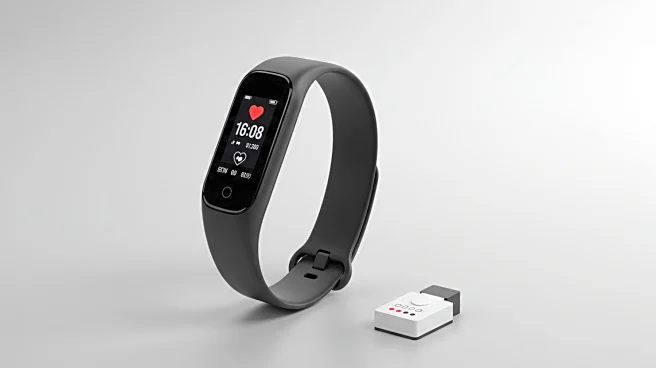What is the story about?
What's Happening?
Fitness trackers like the Oura Ring and Apple Watch are increasingly used by Americans to monitor various health metrics, including sleep, heart rate, and body temperature. These devices provide users with detailed data, sometimes alerting them to potential health issues before symptoms become apparent. However, while they offer valuable insights, they also raise questions about accuracy and the potential for false alarms. Users have reported instances where trackers have helped identify serious health conditions, but experts caution that these devices should complement, not replace, professional medical advice.
Why It's Important?
The widespread use of fitness trackers reflects a growing trend towards personalized health monitoring and the desire for greater control over one's health. These devices can empower individuals by providing real-time data, potentially leading to earlier detection of health issues. However, reliance on trackers also highlights the need for critical evaluation of their accuracy and the importance of consulting healthcare professionals. As technology advances, the role of fitness trackers in healthcare may expand, influencing how individuals approach health management and preventive care.
Beyond the Headlines
The popularity of fitness trackers raises ethical and privacy concerns regarding the collection and use of personal health data. It prompts discussions about the balance between technological innovation and the protection of individual privacy. Additionally, the reliance on trackers may contribute to a culture of self-monitoring, impacting mental health and perceptions of wellness. The integration of these devices into daily life underscores the need for clear guidelines and regulations to ensure their responsible use.















